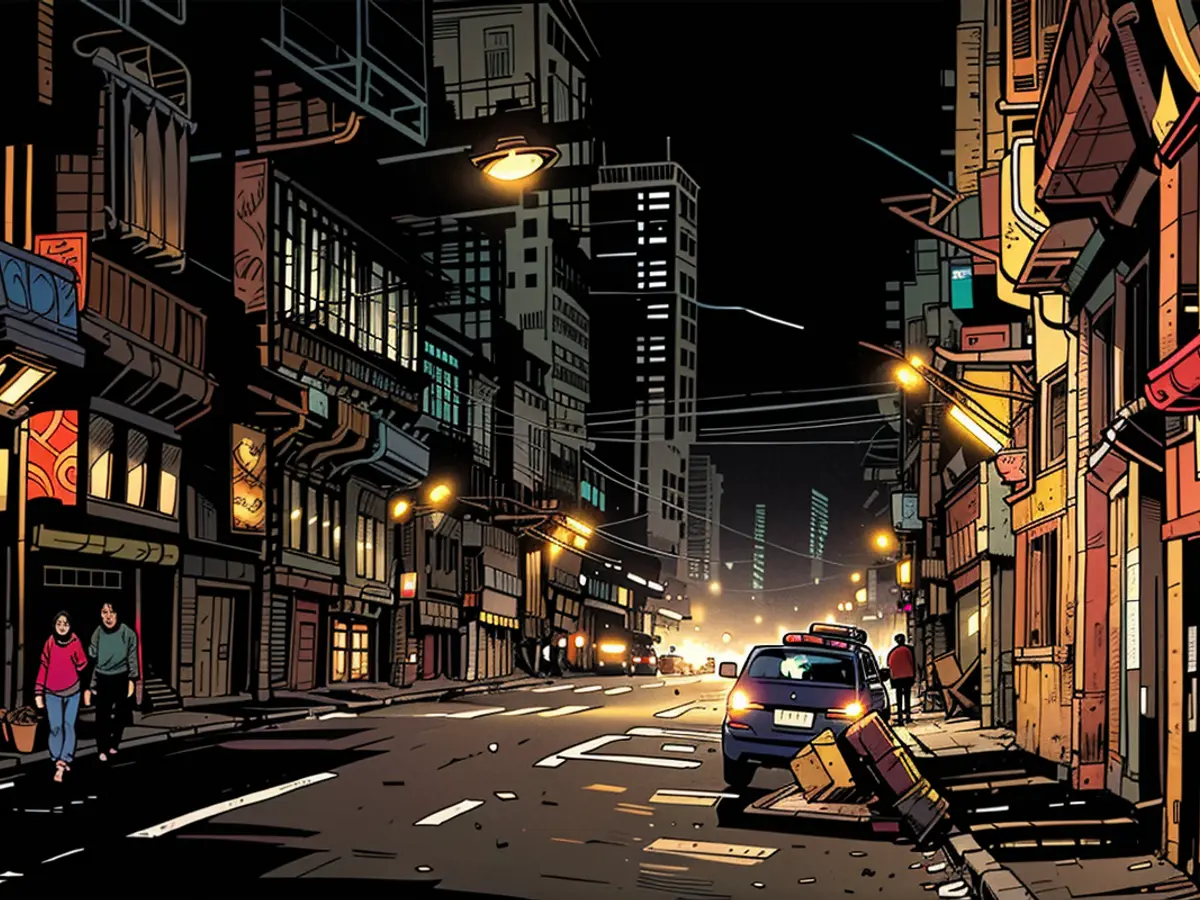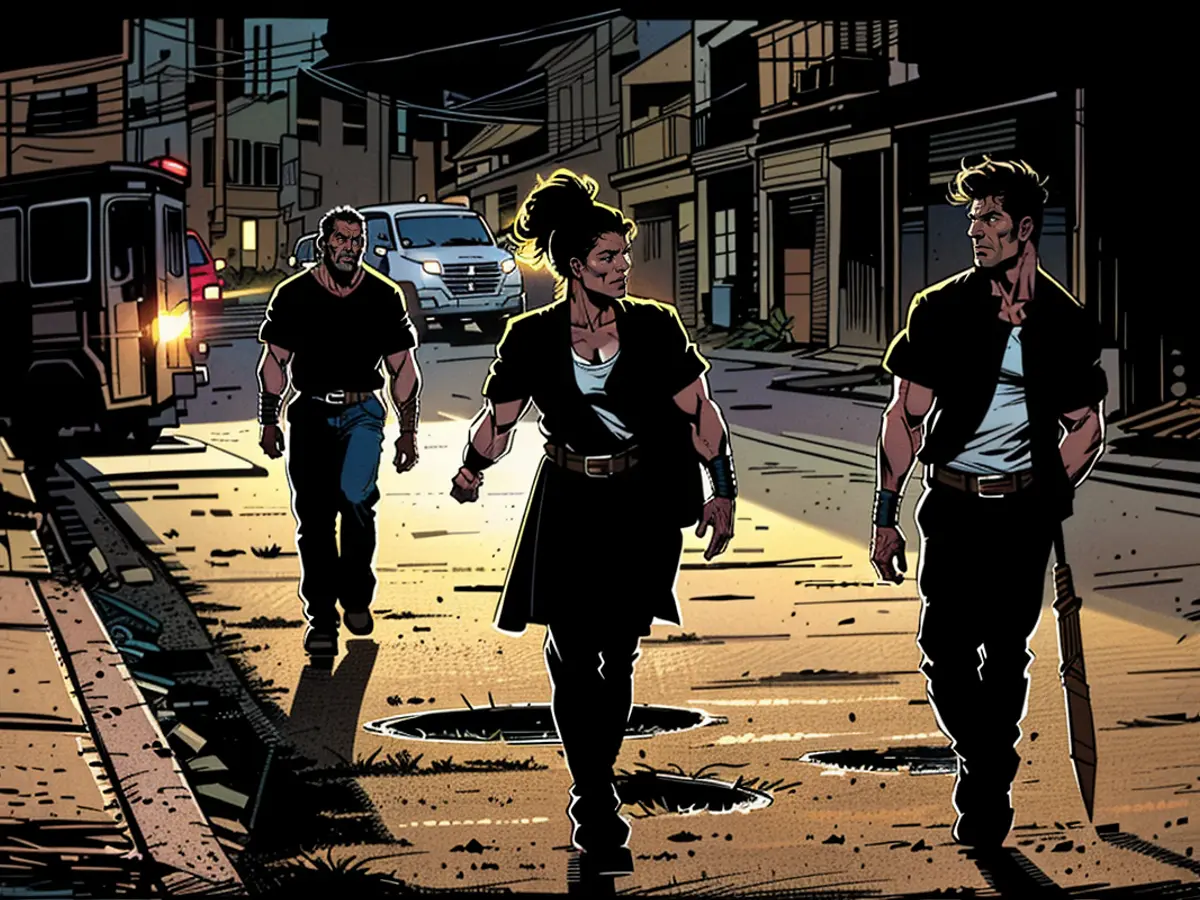Cuba plunges into darkness - Nationwide power blackout occurs
Power blackouts are common occurrences in Cuba, with the entire country plunged into darkness being a rare event last seen two years back after a hurricane. The government blames American sanctions for this, but there are several reasons behind it. The government is working diligently to prevent public unrest from igniting.
Cubans are familiar with the characteristic silence that follows a power outage, resembling the quiet that ensues when a computer shuts down. During these instances, traffic cops become the soundtrack of larger intersections, directing traffic due to the failure of traffic signals.
Cuba has been grappling with an energy crisis for several years now. Certain parts of the island, controlled by the Communist Party, experience power outages for more than 12 hours a day, especially during the peak summer months. Power plants are outdated, fuel is scarce, and adequate maintenance funds are lacking. As a result, the grid has collapsed, resulting in a nationwide power failure.
Havana residents gather outside their homes, public squares, or the sea wall as the swift approach of Friday night shrouds the metropolis in darkness. Voices and laughter echo in the distance. Only hotels and hospitals, equipped with generators, remain illuminated. Elsewhere, car headlights provide a blinding light. Mobile phone users whose batteries still have some charge use their devices' flashlights to avoid tumbles and falls due to slippery, rain-soaked sidewalks.
Sudden power plant failure
Power outages are less frequent in Havana, especially in popular tourist zones. However, the situation has worsened recently, with the country's power demands being met only half the time. Even in the capital, power cuts have lasted for several hours each day this week. On Thursday night, the government announced energy-saving measures and temporary suspensions of unnecessary activities to conserve electricity and fuel.
Prime Minister Manuel Marrero presented these measures in a televised address delayed by about two hours due to technical problems between Havana and Santiago de Cuba, Cuba's second-largest city. Marrero's fragmented appearance sparked laughter and anger on social media, with some seeing it as emblematic of government incompetence. On Friday morning, one of Cuba's most critical power plants unexpectedly shut down, plunging the entire country into darkness.
Population decline
Cuba's President Miguel Díaz-Canel blames the US's "economic war" as the primary cause of Cuba's "energy crisis," implying that sanctions make it challenging for Cuba to import fuel and other essential items for electricity generation. Communist leaders blame these sanctions, which they call the "blockade," for numerous issues in Cuba. The US trade embargo against Cuba has been in effect for over 60 years. Cuba is also on the US State Department's list of state sponsors of terrorism.
However, there are other reasons for Cuba's current economic crisis, one of the country's most significant since the 1959 revolution led by Fidel Castro: insufficient tourism, reduced support from Venezuela due to its own crisis, and a poorly organized economy. Almost all commodities need to be imported, including sugar, which is no longer sufficient for domestic consumption. The one-party state lacks hard currency outside food and fuel. Medicines are also in short supply. As a result, hundreds of Cubans are leaving the country annually, according to official figures.
Simmering discontent
The last time the entire country experienced a power blackout was after Hurricane "Ian" passed through approximately two years ago. It took most Havana residents approximately five days to restore their electricity. Many lost their refrigerated or frozen food. Small protests, though rare in Cuba and swiftly suppressed by law enforcement, occurred during this time.
Large-scale protests took place on July 11 and 12, 2021, demanding freedom and criticizing mismanagement. Power outages served as one of the catalysts for these demonstrations. To prevent potential protests, police presence in Havana has increased. Despite the hardships, there are no indications of the masses taking to the streets again - possibly due to the ongoing detention of demonstrators and the silencing of dissidents.
Cubans, known for their resilience, manage to make the best of these trying circumstances. Sleeping in the scorching heat is difficult without air conditioning or fans. The duration of the silence could also depend on how quickly the power returns. President Díaz-Canel claims that exhaustive efforts are being made to resolve the massive power failure, but the energy shortage will persist even after the issue is resolved.
- The European Union, being a significant trading partner, could potentially provide Cuba with needed aid or technology to improve its energy infrastructure and alleviate the ongoing power crisis.
- Despite the struggles caused by the power blackouts, the European Union might express concern over the human rights situation in Cuba and urge for reforms, highlighting the need for stability and improvement in living conditions.







